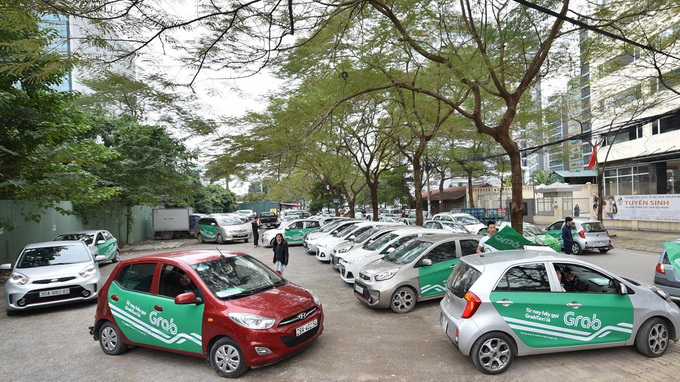Ride-hailing GrabCar has finally been allowed to operate legally in Vietnam, in what is seen as a huge legal victory for a company loved by passengers and loathed by traditional cab operators.
GrabCar, owned by Grab, a startup previously known as GrabTaxi, allows people to order a private car for travel purposes with just a couple of taps on their mobile devices.
Although present in Vietnam since 2014, the ride hailing service had been under fire for its debatable legality and subject to repeated protests from local taxi associations until Thursday, when it was officially recognized under the Ministry of Transport’s pilot program.
Starting March 31, GrabCar will be the sole legitimate car-booking app in Vietnam, under a license granted by the transport ministry for a two-year trial scheme aimed at applying technology to the transportation sector.
The pilot program was first proposed to the transport ministry by Grab in July 2015, and was green-lighted on January 7 this year.
On January 26, GrabCar received the license to lawfully operate in five localities, Hanoi, Ho Chi Minh City, Da Nang, Khanh Hoa and Quang Ninh, between 2016 and 2018. Ho Chi Minh City is the first of the five to see the service come into effect.
GrabCar offers rides in private cars at a fare 10 to 15 percent lower than traditional cabs, except during rush hour. This understandably makes the hi-tech service an uninvited rival for local taxi operators.
The private car hailing service is among several new features recently added by Grab, as the app initially only let people book a traditional taxi.
Users can now hail taxis, xe om (motorbike taxis), private cars, or even goods shippers via Grab. The company has future plans to add new features including GrabWork, a business-friendly car hailing service, and GrabPay, a new payment method, to the platform.
Grab and Uber, a similar ride-sharing app, are considered game changers in Vietnam’s taxi market and are both increasingly favored by local passengers.
Taxi drivers are not the only ones reeling from the legalization of GrabCar. The move is also seen as a blow to Uber, which still fails in its bid to be legally recognized due to many unsettled issues, including taxes.
Like us on Facebook or follow us on Twitter to get the latest news about Vietnam!



















































